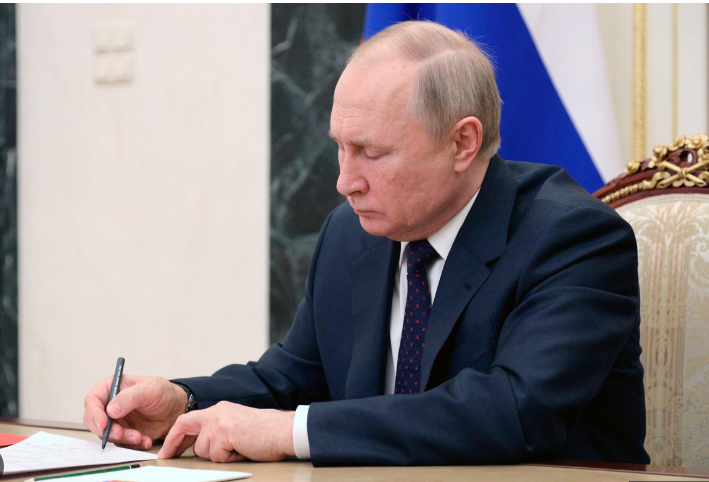Former U.S. Ambassador to Ukraine, Bill Taylor, has raised doubts regarding Russian President Vladimir Putin’s recent claims about being open to negotiating an end to the conflict in Ukraine directly with the United States. Taylor dismissed Putin’s assertions as “not real,” emphasizing the need for any resolution to involve direct discussions between Russia and Ukraine. This skepticism comes in the wake of Putin’s interview with conservative commentator Tucker Carlson, during which he purportedly expressed willingness for negotiations but spent much of the conversation reiterating justifications for Russia’s military actions.
The interview with Carlson marks the first time Putin has engaged with a member of Western media since Russia’s invasion of Ukraine nearly two years prior. However, instead of offering genuine avenues for peace, much of Putin’s discourse revolved around historical inaccuracies and attempts to rationalize Russia’s aggressive maneuvers in Ukraine and elsewhere. Taylor’s assessment underscores a widespread sentiment that Putin’s overtures lack credibility and fail to address the root causes of the conflict.
Meanwhile, in Washington, the urgency to provide additional aid to Ukraine is palpable, yet the process is mired in internal struggles. Congress is grappling with passing a $95.3 billion supplemental funding bill aimed at bolstering support for Ukraine, Israel, and other national security priorities. Despite bipartisan support for aiding Ukraine’s defense efforts, partisan disagreements and bureaucratic hurdles have hindered the swift passage of the legislation.

Ukrainian President Volodymyr Zelensky has intensified his pleas for assistance from Europe as delays in aid packages from Washington persist. Zelensky’s concerns are compounded by the ongoing conflict with Russia, which has intensified in recent months. The need for immediate support to defend against Russian aggression and eventually push back Russian forces is paramount for Ukraine’s security and sovereignty.
Taylor’s remarks serve as a reminder that while international support is crucial, ultimately, it is the direct involvement and cooperation between Russia and Ukraine that will determine the resolution of the conflict. The complexities of the situation underscore the challenges facing policymakers in Washington as they navigate the delicate balance between providing aid to Ukraine and managing diplomatic relations with Russia.
Read More News:
- Ohio Supreme Court Appeal Delays Moundbuilders Country Club Trial
- Georgia Governor Kemp Warns of Consequences for 2024 Presidential Election
- Starbucks Faces Labor Law Violation Charges in Western New York: Company Responds
As tensions persist and the humanitarian crisis in Ukraine deepens, the need for decisive action from the international community remains pressing. The fate of Ukraine hangs in the balance, with its future hinging on the ability of key stakeholders to transcend political divisions and work towards a lasting peace in the region.






